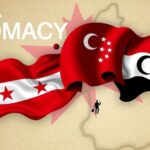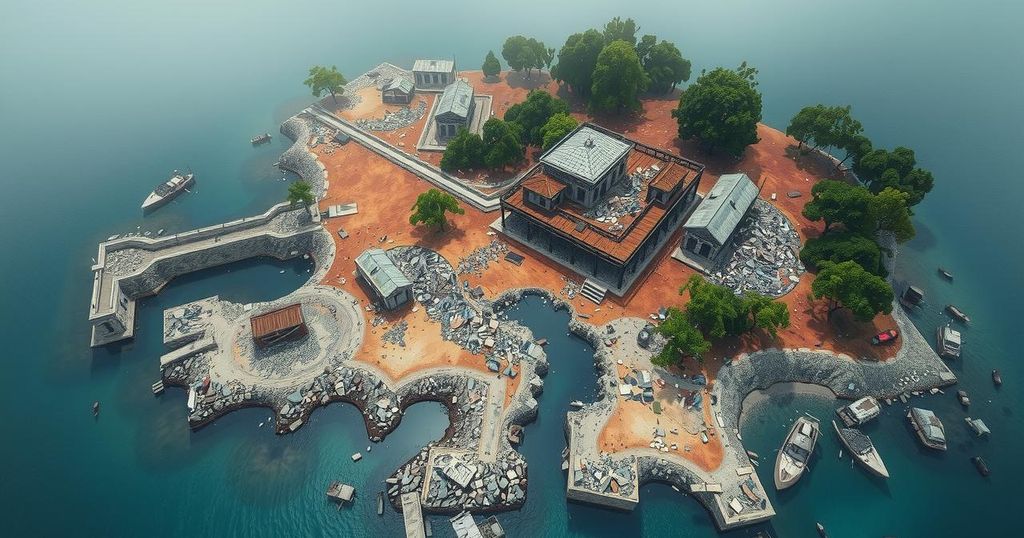Conflicts
Politics
ASIA, ASSAD, BASHAR AL - ASSAD, CONFLICT, EUROPE/ASIA, HAYAT TAHRIR AL - SHAM, HTS, IDLIB, IRAN, KURDISH - LED, KURDISH YPG, MILITARY OPERATIONS, REFUGEE CRISIS, RUSSIA, SDF, SNA, SYRIA, SYRIAN CIVIL WAR, SYRIAN CONFLICT, SYRIAN DEMOCRATIC FORCES, SYRIAN NATIONAL ARMY, TURKEY, US, WAR, YPG
Omar El-Sharif
International Involvement in the Syrian Conflict: Key Players and Their Interests
The Syrian conflict, which led to the ousting of Bashar al-Assad, has drawn significant international involvement. Turkey supports rebel groups to counter Kurdish threats, while Russia has bolstered Assad militarily. The U.S. focuses on combating ISIS and retaining troop presence amidst complex geopolitical tensions. Iran backs the Assad regime, and Israel conducts air strikes to curb Iranian influence.
The Syrian conflict, which culminated in the fall of President Bashar al-Assad after decades of rule, has been marked by international involvement from various nations, each with distinct interests. Following the onset of a civil war in 2011 stemming from pro-democracy protests, opposition forces engaged in intense combat with Assad’s regime, ultimately leading to his ousting in December.
Turkey has played a significant role by supporting the Syrian National Army and aiming to curb the influence of the Kurdish YPG militia, which it perceives as a threat. Simultaneously, Turkey’s political involvement has extended to brokering ceasefires, including in the rebel stronghold of Idlib. Contrastingly, Russia established military ties with Assad, launching air operations in 2015 to bolster his regime, while simultaneously securing strategic military bases in Syria. However, the ongoing conflict with Ukraine has diverted Russian attention, affecting support for Assad.
The United States initially focused on combating the Islamic State, conducting air strikes and supporting Kurdish-led groups, but has since maintained a limited troop presence in Syria. Despite President Trump expressing intentions to withdraw, approximately 900 U.S. troops remain active in the region. Iran, a longtime ally of Assad, has invested heavily in the conflict, deploying resources and military personnel, notably through Hezbollah, augmenting the regime’s military capacity.
Israel, sharing a border with Syria, has conducted numerous air strikes targeting Iranian interests to prevent weapon stockpiling by hostile factions. Its strategic actions in Syria are aimed at defending its borders from perceived threats. This interwoven involvement of regional and global powers aims to shape Syria’s future post-Assad, thus complicating a resolution to the ongoing conflict.
The Syrian conflict began in 2011 after President Bashar al-Assad’s violent suppression of pro-democracy protests, resulting in a prolonged civil war that led to the deaths of over half a million individuals and the displacement of millions. Various countries have engaged with different factions in the conflict, driven by differing strategic interests and regional objectives. The situation is further complicated by the involvement of global powers like the United States, Russia, Iran, and Turkey, each engaging with the situation in pursuit of their political, military, and economic interests.
The Syrian conflict has evolved into a complex geopolitical battleground, influenced by various nations pursuing their interests. Turkey and the United States have supported rebels against Assad, while Russia and Iran have provided substantial military backing to the regime. Israel maintains a vigilant stance against Iranian activity in Syria, conducting strikes to protect its national security. As the aftermath of Assad’s regime unfolds, the involvement of these nations will likely continue to shape Syria’s political landscape, with ongoing tensions between competing factions and interests.
Original Source: www.bbc.co.uk








Post Comment